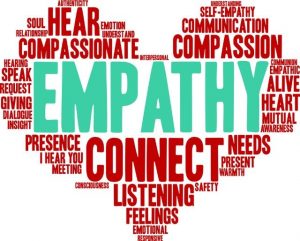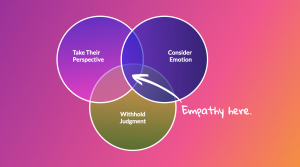
Pastor Rich Knight
Central Congregational Church
Jan. 12, 2019
Romans 12:9-21
Let love be genuine; hate what is evil, hold fast to what is good; love one another with mutual affection; outdo one another in showing honor. Do not lag in zeal, be ardent in spirit, serve the Lord. Rejoice in hope, be patient in suffering, persevere in prayer. Contribute to the needs of the saints; extend hospitality to strangers. Bless those who persecute you; bless and do not curse them. Rejoice with those who rejoice, weep with those who weep. Live in harmony with one another; do not be haughty, but associate with the lowly; do not claim to be wiser than you are. Do not repay anyone evil for evil, but take thought for what is noble in the sight of all. If it is possible, so far as it depends on you, live peaceably with all. Beloved, never avenge yourselves, but leave room for the wrath of God; for it is written, “Vengeance is mine, I will repay, says the Lord.” No, “if your enemies are hungry, feed them; if they are thirsty, give them something to drink; for by doing this you will heap burning coals on their heads.” Do not be overcome by evil, but overcome evil with good.
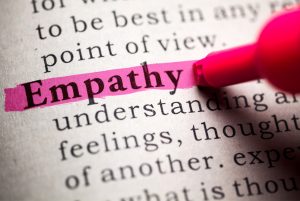
I want us to think for a few moments about the subject of empathy.
Is there anything the world needs more of right now than empathy?
Is there anything our country needs more of right now than empathy? – especially when it comes to understanding those who think differently than us, or who look different than us, or who just go about life completely different from one’s perspective.
The dictionary defines empathy as – the action of understanding, being aware of, being sensitive to, and vicariously experiencing the feelings adidas for big and tall 3 stripes tricot pants size - SchaferandweinerShops KR - ‘Superstar Boot’ sneakers adidas for Originals, thoughts, and experience of another (Merriam-Webster)
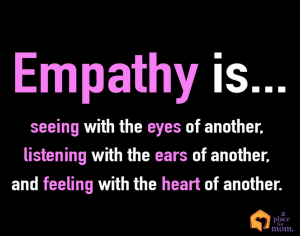
Another definition says, “Empathy is the capacity to understand or feel what another person is experiencing from within their frame of reference, that is, the capacity to place oneself Nike Vomero 18 Review: Bigger is Better – Nike Air Max 95 Cuban Link velvet brown UK 5 – Cheap Fenua-environnement Jordan Outlet in another’s position.” (Wikipedia)
Native Americans were referring to empathy when they said, “Before you criticize someone, make sure you walk a mile in that person’s moccasins.”
Empathy is what we develop when we walk in another person’s moccasins.
St. Paul simply put it this way: “Rejoice with those who rejoice, weep with those who weep.” (Rom. 12:15)

That’s empathy.
Empathy is very important in our faith.
In fact, in the life of Jesus Christ we see the empathy of God personified and embodied. This is one the most unique aspect of Christianity, in that we believe that because of Jesus of Bethlehem, and Jesus of Nazareth of Galilee, and especially Jesus of Calvary and Good Friday – we believe that God understands human suffering firsthand.
God has walked in our moccasins.
The unknown writer of the Book of Hebrews understood this so well, and wrote about it in two places in the book.
Hebrews 2:17-18 –Therefore he had to become like his brothers and sisters in every respect, so that he might be a merciful and faithful high priest in the service of God . . .Because he himself was tested by what he suffered, he is able to help those who are being tested. (tested = trials & suffering)
Hebrews 4:15-16 – For we do not have a high priest who is unable to sympathize with our weaknesses, but we have one who in every respect has been tested as we are, yet without sin. Let us therefore approach the throne of grace with boldness, so that we may receive mercy and find grace to help in time of need.
The Incarnation, the Christmas Event, as well as the entire life of Christ – was a mission of empathy – to show us that God understands our suffering.
John Stott, the great British preacher said this: – “I could not believe in God if it were not for the Cross. In the real world of pain and suffering, how could one believe in a God who was immune to it.”
So empathy is crucial in our understanding of the heart of God and how we can relate to God.
But empathy also crucial in how we relate to others, and how we love others, isn’t it?
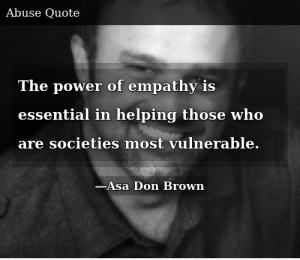
If there’s one group of people in our world who need empathy, it’s folks in the LGBTQ Community. Misunderstood. Ostracized. Marginalized. Ignored at best. Demeaned an abused at worst.
The Suicide rate for members of the LGBTQ community is quite alarming, and should be a wake-up call for us all.
- LGB youth seriously contemplate suicide at almost three times the rate of heterosexual youth.
- LGB youth are almost five times as likely to attempt suicide compared to heterosexual youth.
- In a national study, 40% of transgender adults reported having made a suicide attempt. 92% of these individuals reported having attempted suicide before the age of 25.
- Each episode of LGBT victimization, such as physical or verbal harassment or abuse, increases the likelihood of self-harming behavior by 2.5 times on average.6
“Weep with those who weep.”
It’s striking to me, how far we’ve come and how far we have to go.
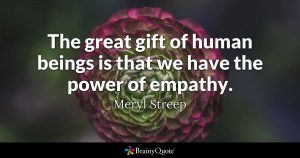
Illustration. I met up with a long-time friend of mine this past Fall. Through the years we’ve talked about almost every subject under the sun. And in those subjects we either agree or he’s slightly to the left of me, or far to the left of me.
I told him about our “Open & Affirming” process. And he thought it was great, because for far too long gay & lesbian folks haven travis scott air jordan 1 retro low og black olive release date fall 2024’t felt or been welcomed in most churches. But then he said, “Transgendered is something I just don’t get, and folks that don’t know if they’re a man or a woman. I really don’t get that. You gotta choose.”
I was shocked because we’d never had an issue where I was to the left of him! Rather than argue with him, I simply told a true story.
“Well, I have a friend, who I like and respect a lot. We worked together for several years. This person is kind, extremely talented and a faith-filled Christian. And some days my friend wakes up and feels like a woman. And other days my friend wakes up and feels more like a man. And you can tell exactly how my friend is feeling that day by the clothes & the outfit they are wearing.”
Now, I personally don’t know what that’s like. I can’t exactly relate to that at all. That’s beyond my experience. But I can be empathetic! I can weep with those who weep! That has got to be extremely difficult, gut-wrenching to the core, especially when one is quite young. I can empathize with how challenging, confusing and awful that must be.

Illustration. Years ago, I used to like Mike Huckabee a little bit, when he first came on the political landscape years ago. He seemed nice and friendly. He was the governor of Arkansas, but before he went into politics he was a guitar-playing, somewhat over-weight pastor. What’s not to like about that?
But he’s either changed or I had the wrong impression of him years ago. Because two years ago he was on a political show talked about the issue of gender identity and public restrooms. And Mike Huckabee made light of the situation by saying, “Man, when I was in high school I would have loved to have said, ‘I’m a girl, so I could go into the girls’ locker room.”
“Weep with those who weep?”
Remember that statistic I mentioned earlier? – when a LGBTQ person is verbally air jordan 23 howard university pe abused, demeaned, insulted, they are 2 ½ times more likely to harm themselves.
“Weep with those who weep. Rejoice with those who rejoice.”
If I were ever to meet Mike Huckabee, I’d say to him, If we can’t be empathetic with those who struggle with their own gender identity, then who can we be empathetic with?
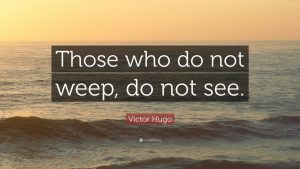
I don’t want to end on an angry note, so let me offer . . .
Two suggestions for practicing empathy.
- Be a curious person.
When your talking with someone who thinks differently that you, ask them questions that are neutral, non-judgmental and non-argumentative. Just be curious! I’ve done this now once in a row!
Illustration. I was talking with someone a couple weeks ago who said, “It is a lousy time to be a white male. We are an endangered species!”
Now, I could have preached a sermon right then & there. But that would have accomplished very little and probably would have damaged my relationship with this person.
So instead, I said, “Tell me more about that. What makes you feel that way?”
“Well, we’re not even allowed to use the term, ‘Mankind.”
“And Berkeley, CA just changed the name of ‘Manhole covers’ to ‘maintenance holes’” (I had to agree with him about manhole covers.)
He then talked about the “Me, Too” movement and how he was afraid to even compliment a woman on her looks. I could empathize with that, too. But we agreed that men have a long history of not treating women very well and objectifying them. We also agreed that change is hard, but necessary.
But he kept saying, “It’s just hard to be a white man today.”
After a while, I felt I had earned the right to be heard, and so I simply said, “We’re still holding our own. I think overall we’re still hanging in there.” He laughed and seemed to agree some. (I mentioned the percentages of white CEO’s, executives, head coaches, politicians, etc.)
My point is, curiosity served me well! It got us talking about some important issues in a very positive, exploratory way, and even finding common ground.
Here’s one other suggestion for practicing empathy.
- As you look folks in the eye, try to think about what life looks like from behind their eyes.
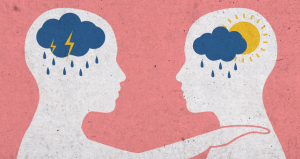
What does the world look like as seen through their eyes.
Illustration. I read recently that people who regularly read novels tend to be more empathetic than those who don’t. The theory is that in reading works of fiction one is often put into the position of looking at life through another’s eyes. And it turns out that that practice is really good for us.

ILL. George Orwell. (1903-1950)
One person who practiced looking at life through another’s eyes was the famous writer, George Orwell, author of 1984. Orwell had been a colonial police officer in British Burma in the 1920s. He returned to Britain in hopes of being a writer. Someone urged him to write about what he knew, what he’d experienced. He realized that, despite his travels his world was quite narrow.
So he decided to learn what life was like for those living on the margins of society.
“I wanted to submerge myself, to get right down among the oppressed,” he wrote.
So he dressed up as a homeless person with shabby clothes and shoes, and lived on the streets of East London with other homeless folks. He had people call him, “P.S. Burton.” The result of this experience was his first book ever published, Down and Out in Paris and London. But not only that, it produced a radical change in his beliefs, priorities, and relationships. He not only realized that homeless people are not “drunken scoundrels”—Orwell developed new friendships, shifted his views on inequality, and gathered experiences that greatly enhanced his life and writings. He later said it was the greatest travel experience of his life. (from Greater Good Magazine, Nov. 27, 2012, 6 Habits of Highly Empathetic People.”)
Empathy is powerful!
It changes perspective.
It changes relationships.
It changes us.
And that’s a very good thing.
So, “Rejoice with those who rejoice, weep with those who weep.”
Amen.
